1. The document discusses various C++ concepts related to polymorphism and virtual functions including inheritance, upcasting, overriding virtual functions, pure virtual functions, virtual destructors, and operator overloading. 2. It provides code examples to demonstrate polymorphism with classes like Instrument, Wind, Pet and subclasses Dog and Cat. 3. It also shows examples of upcasting, downcasting using dynamic_cast, returning references/pointers to derived types, and ensuring proper object destruction with virtual destructors.
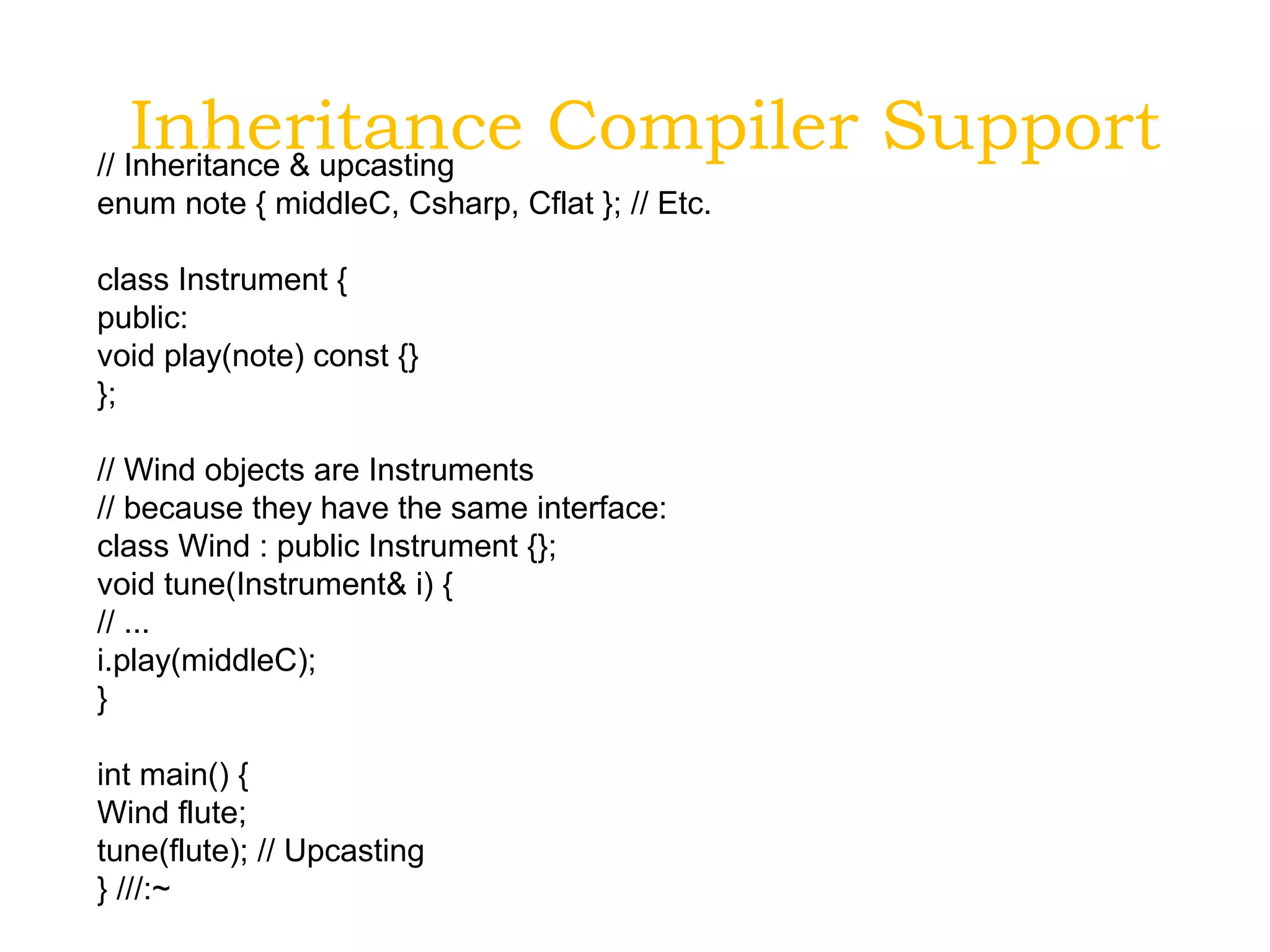
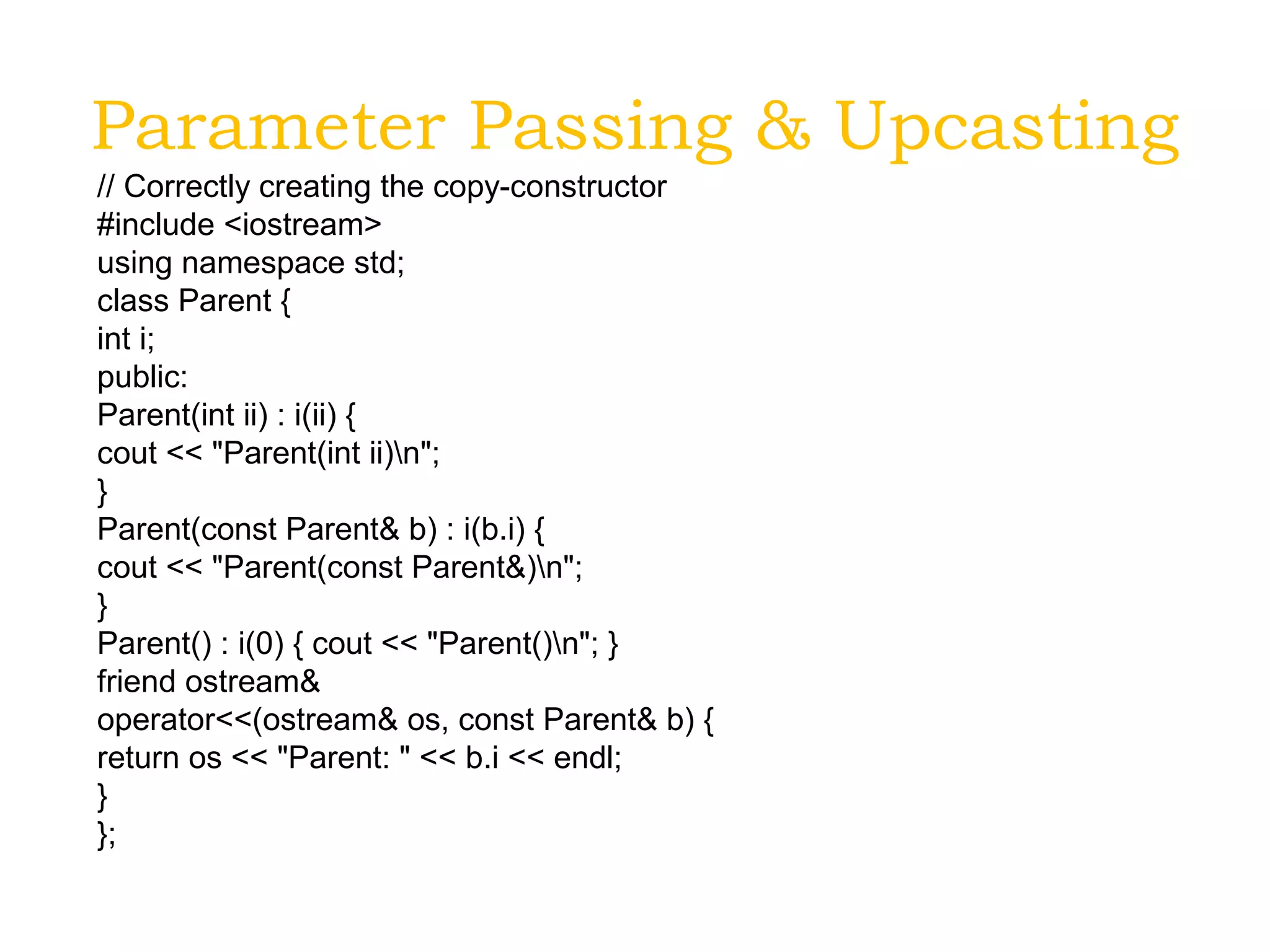
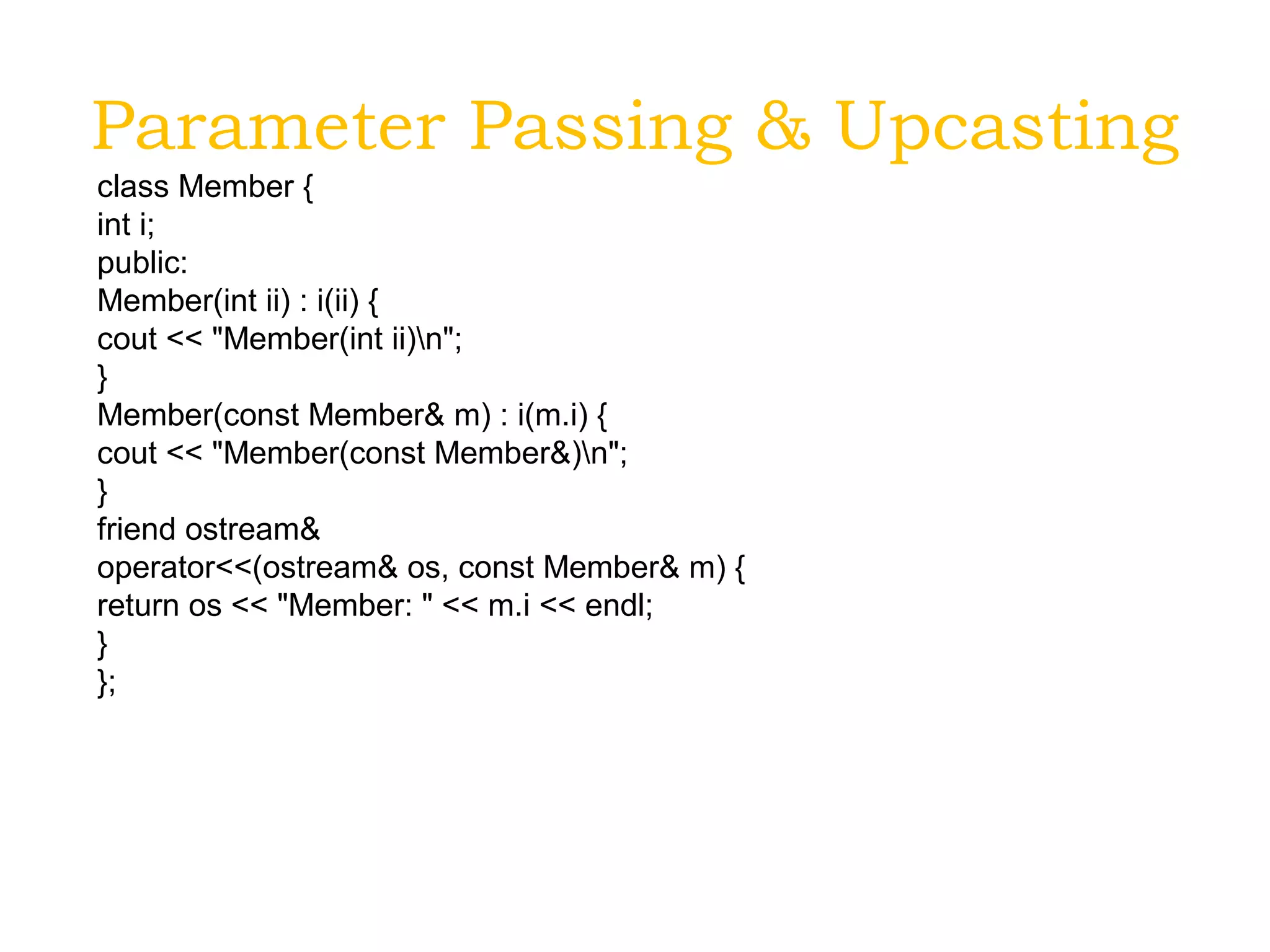
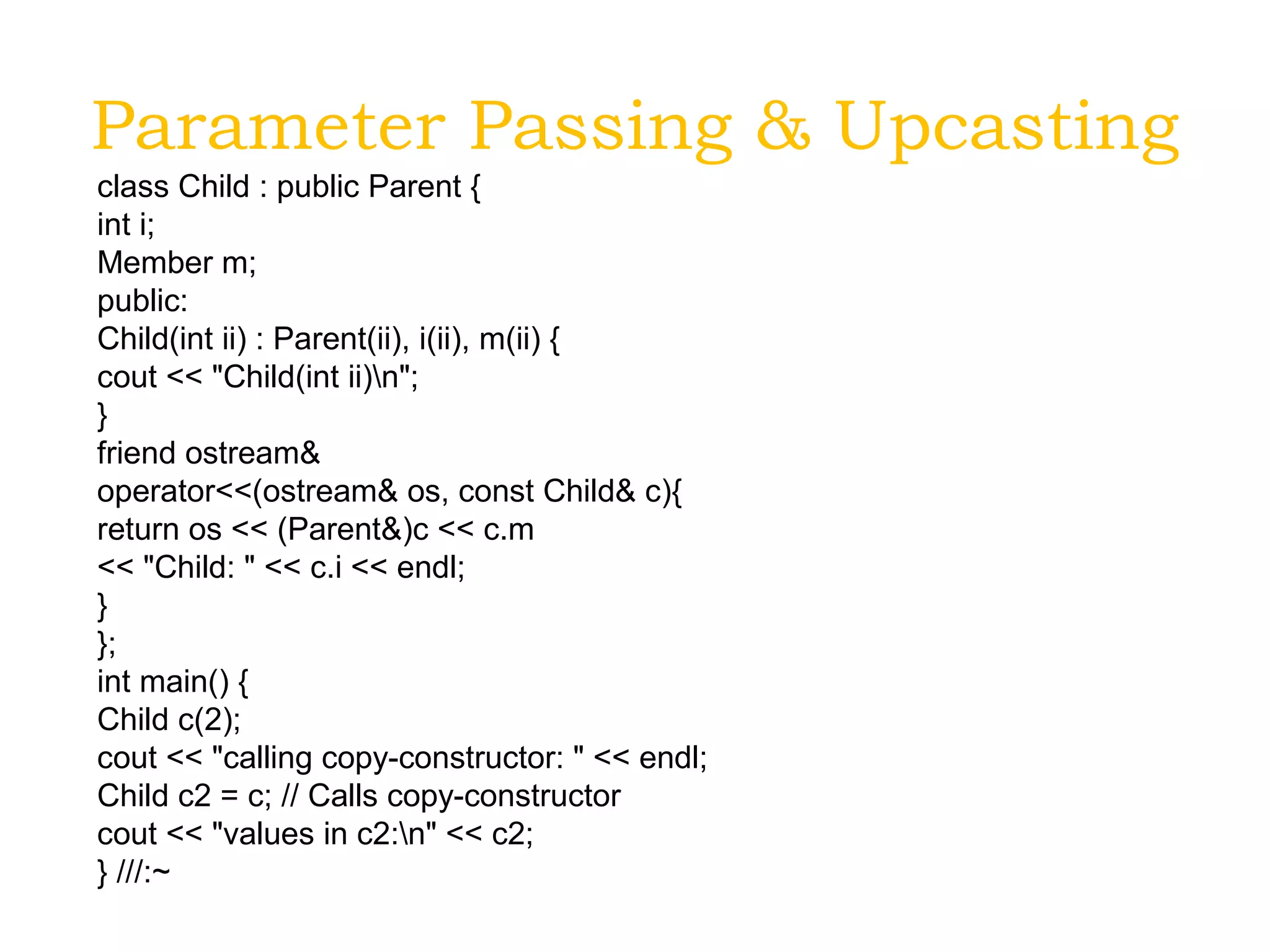
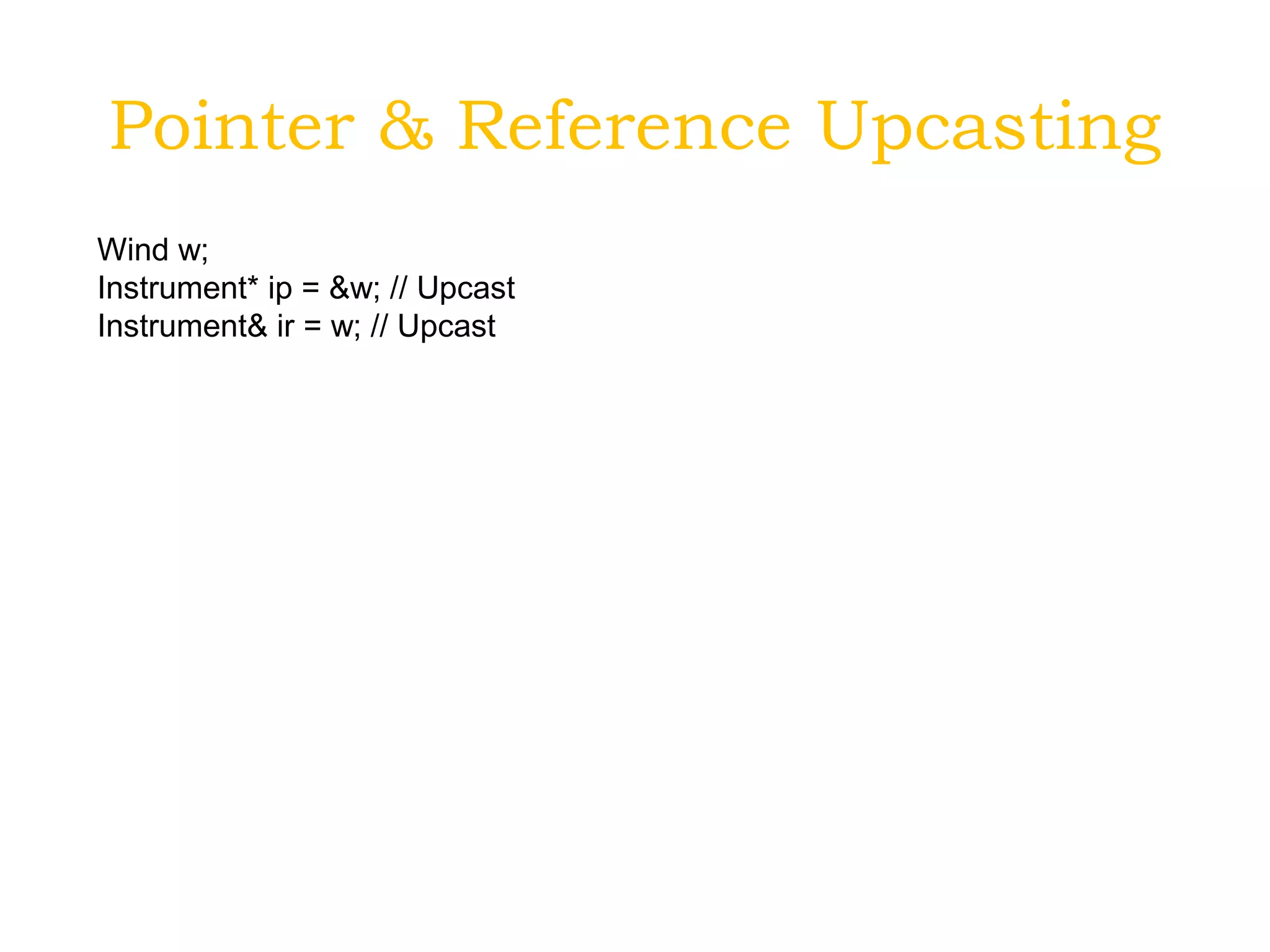
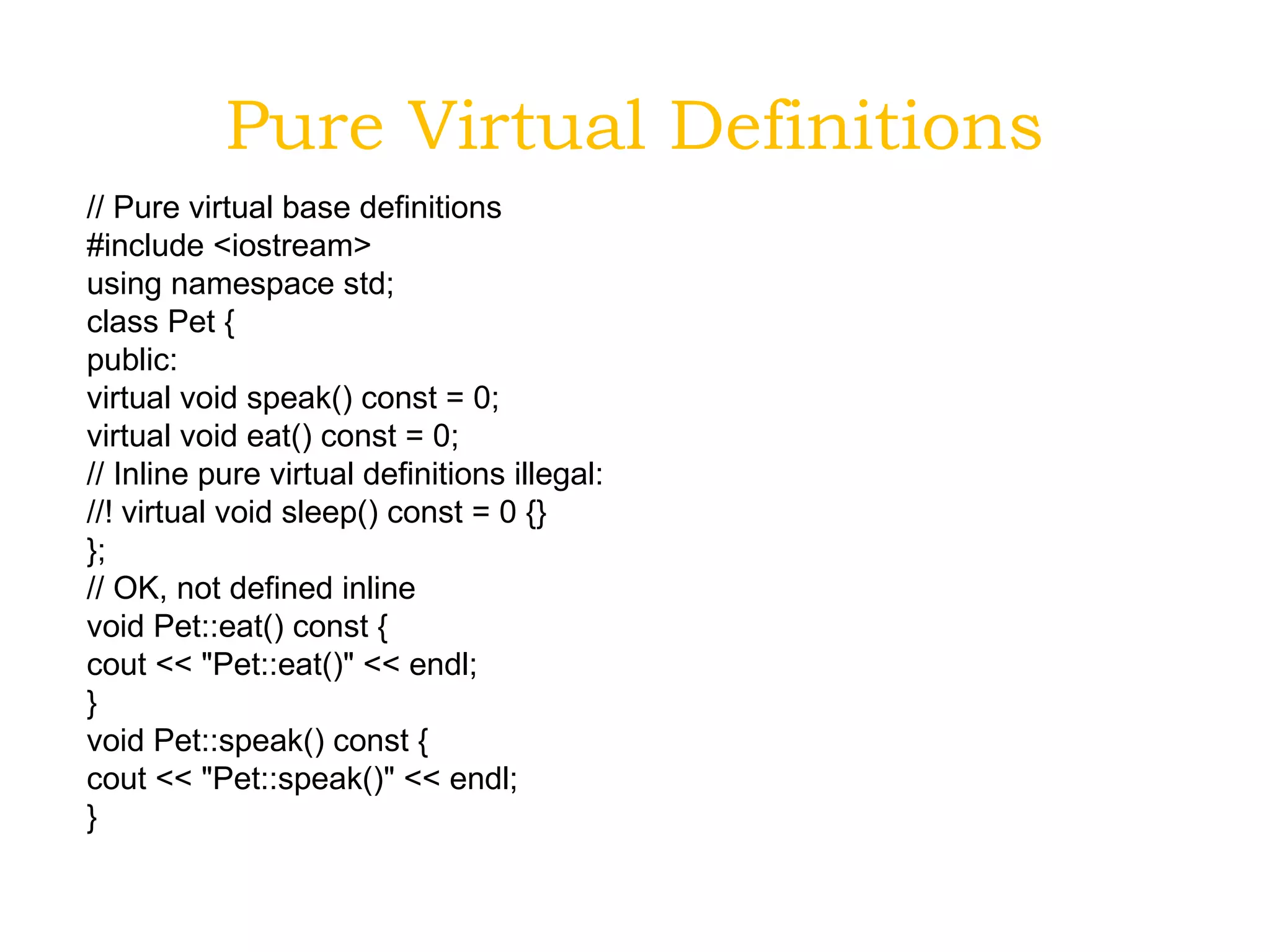
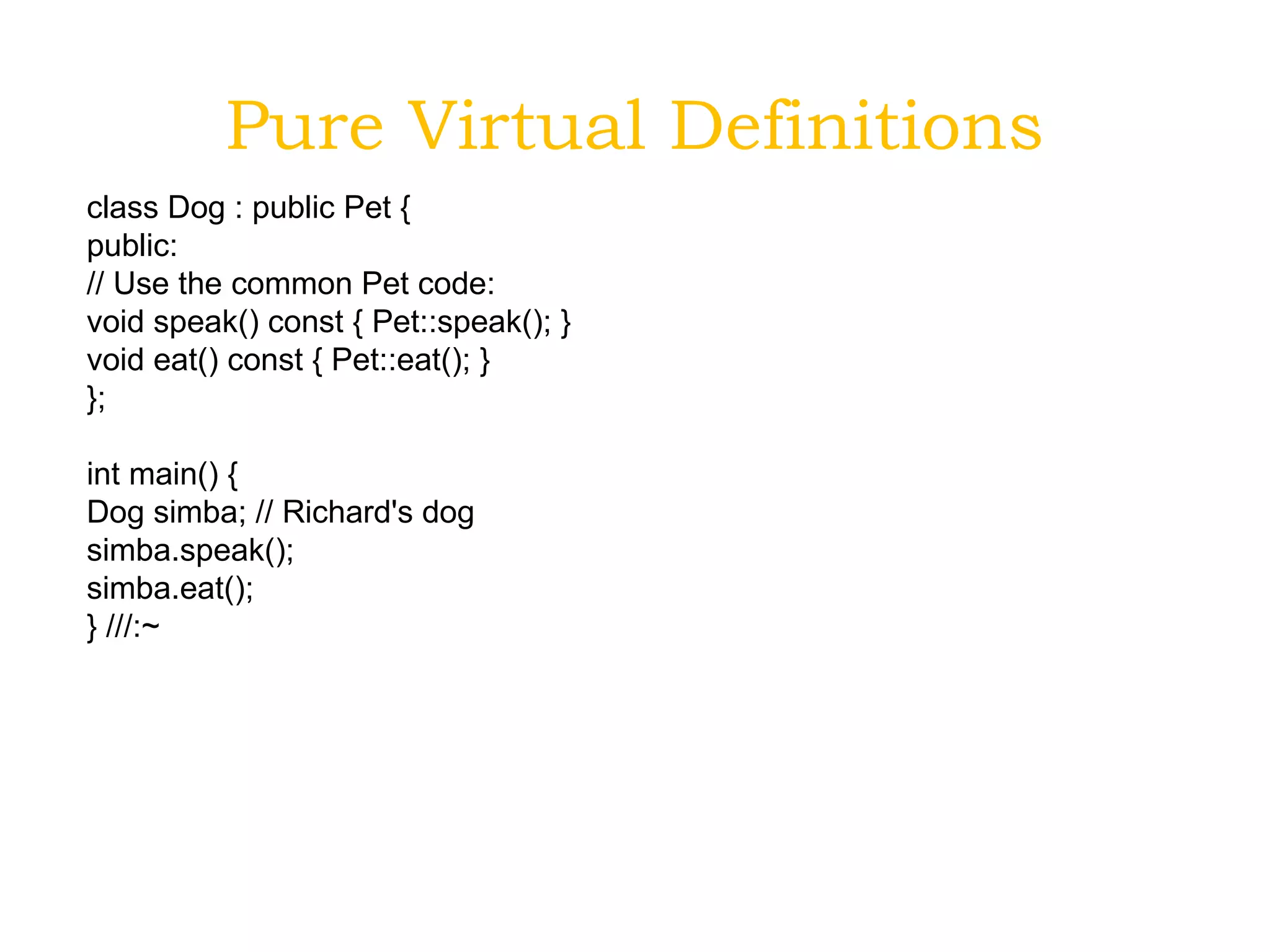
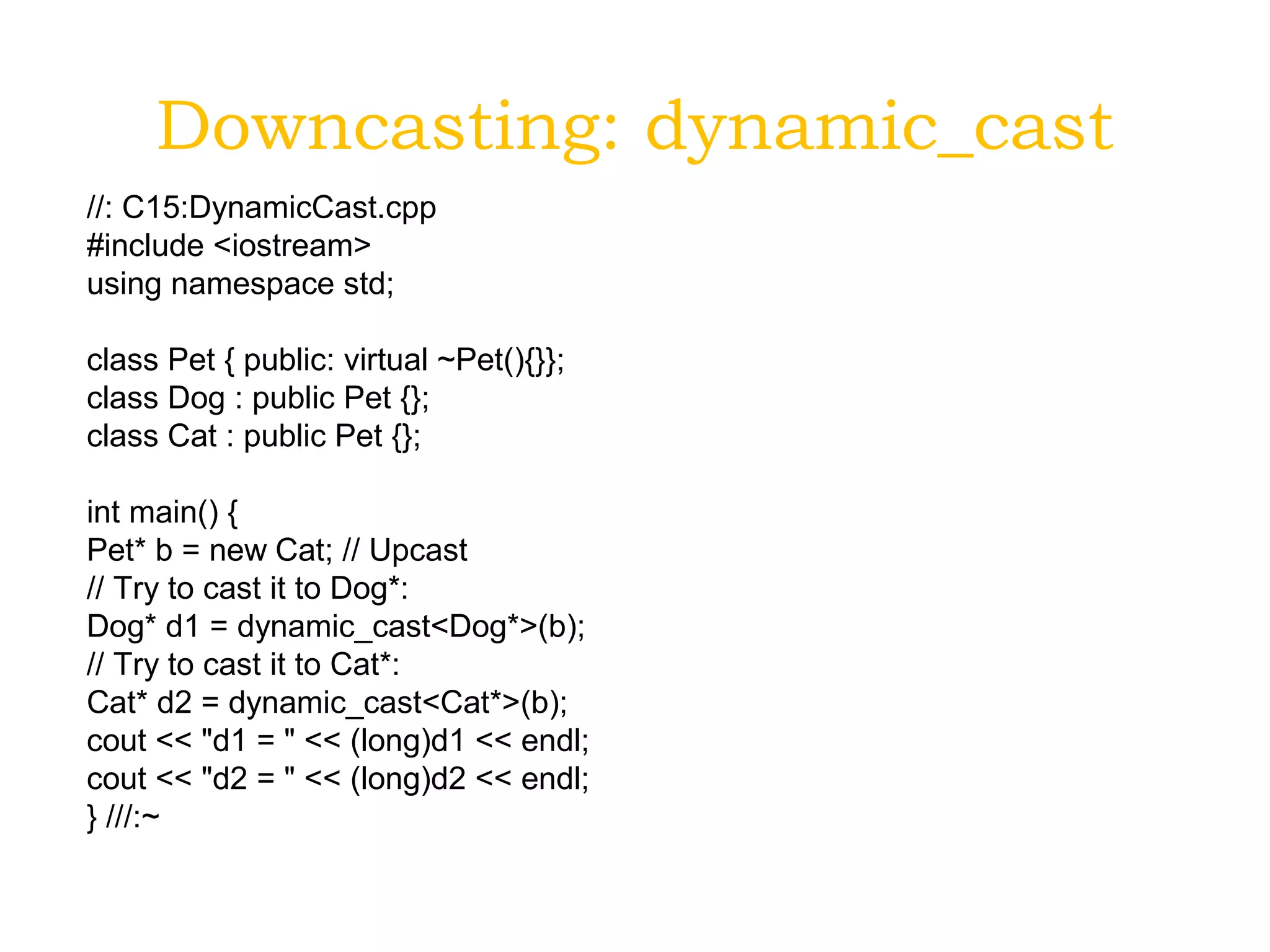
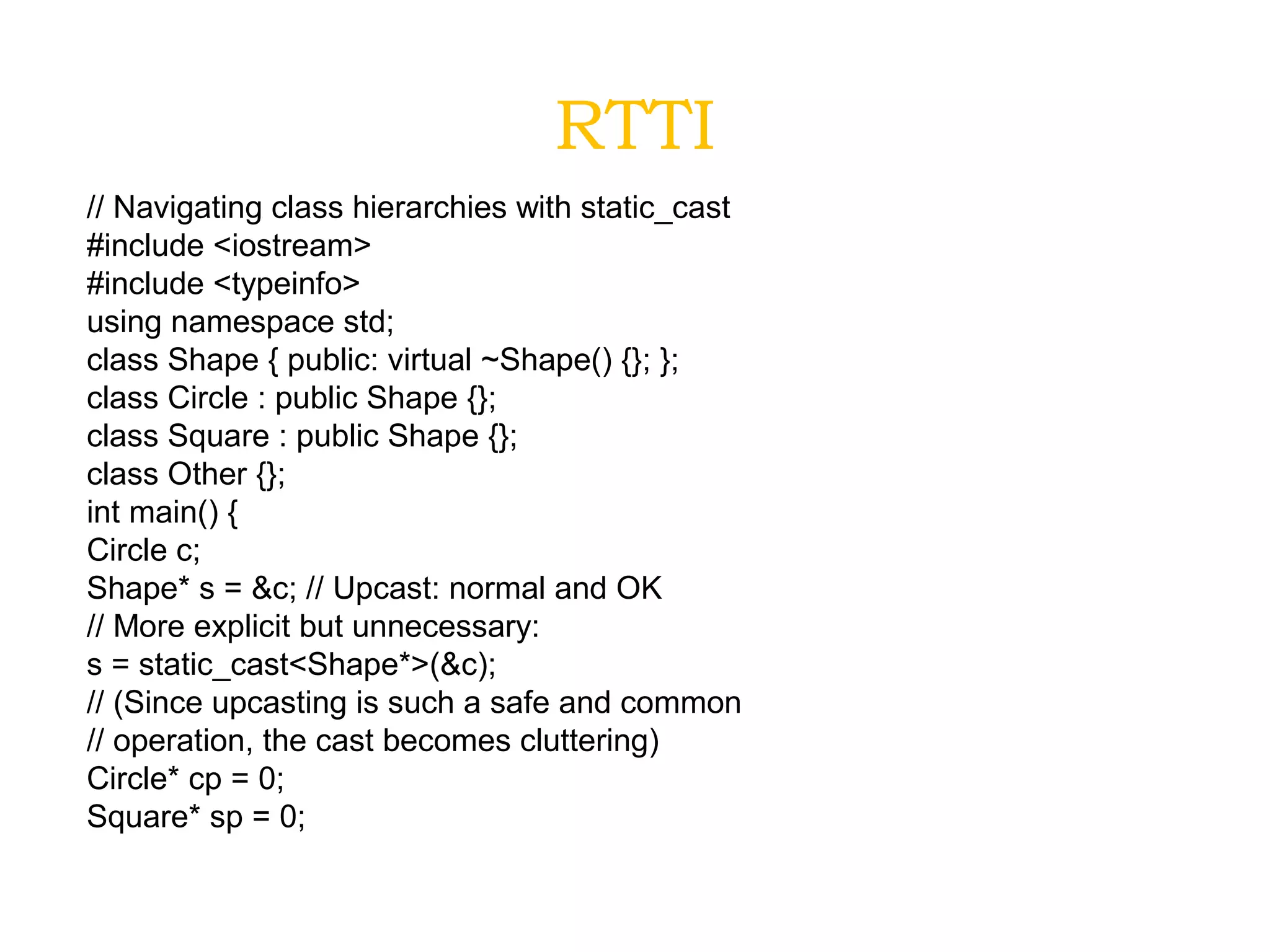
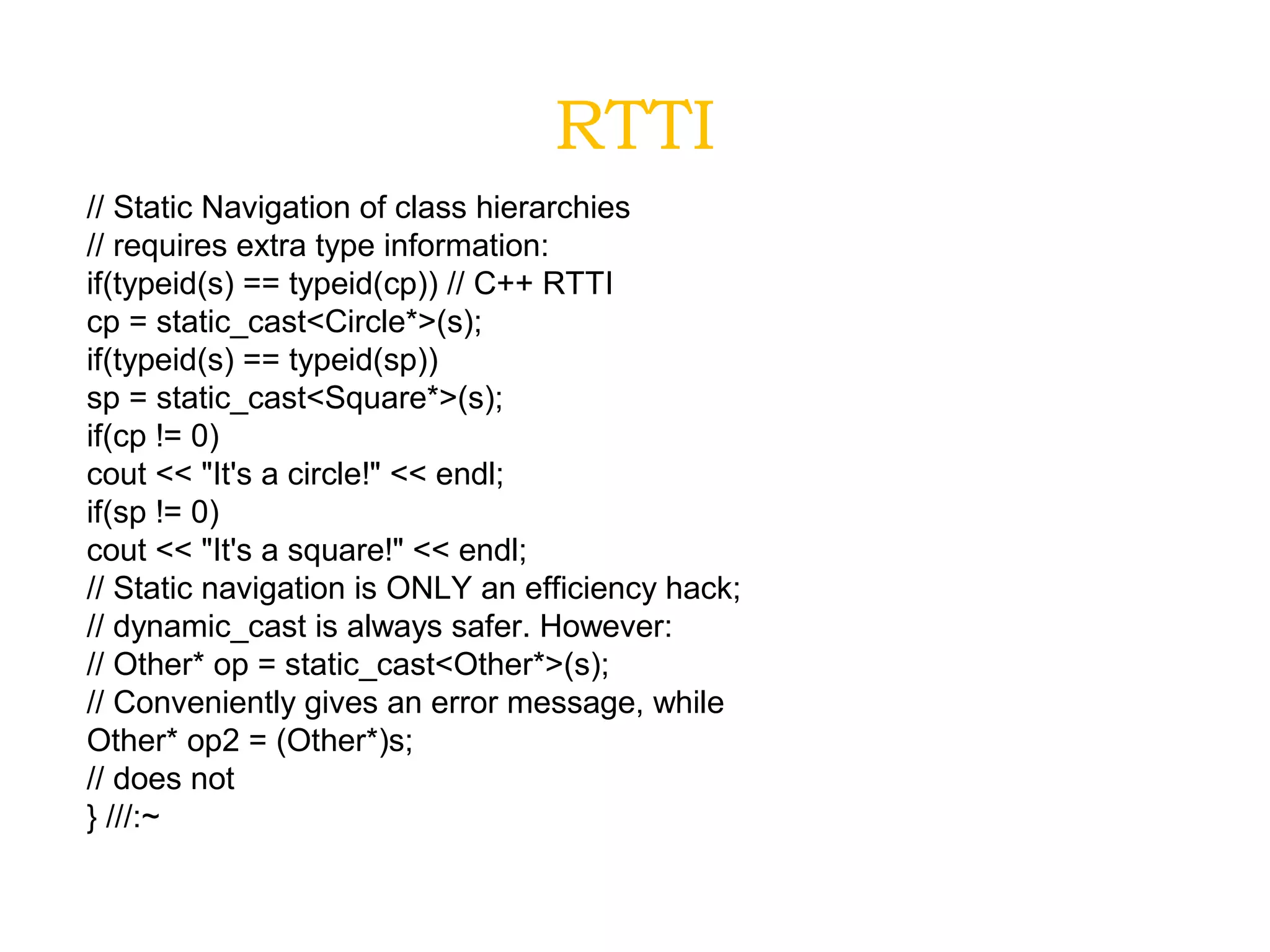
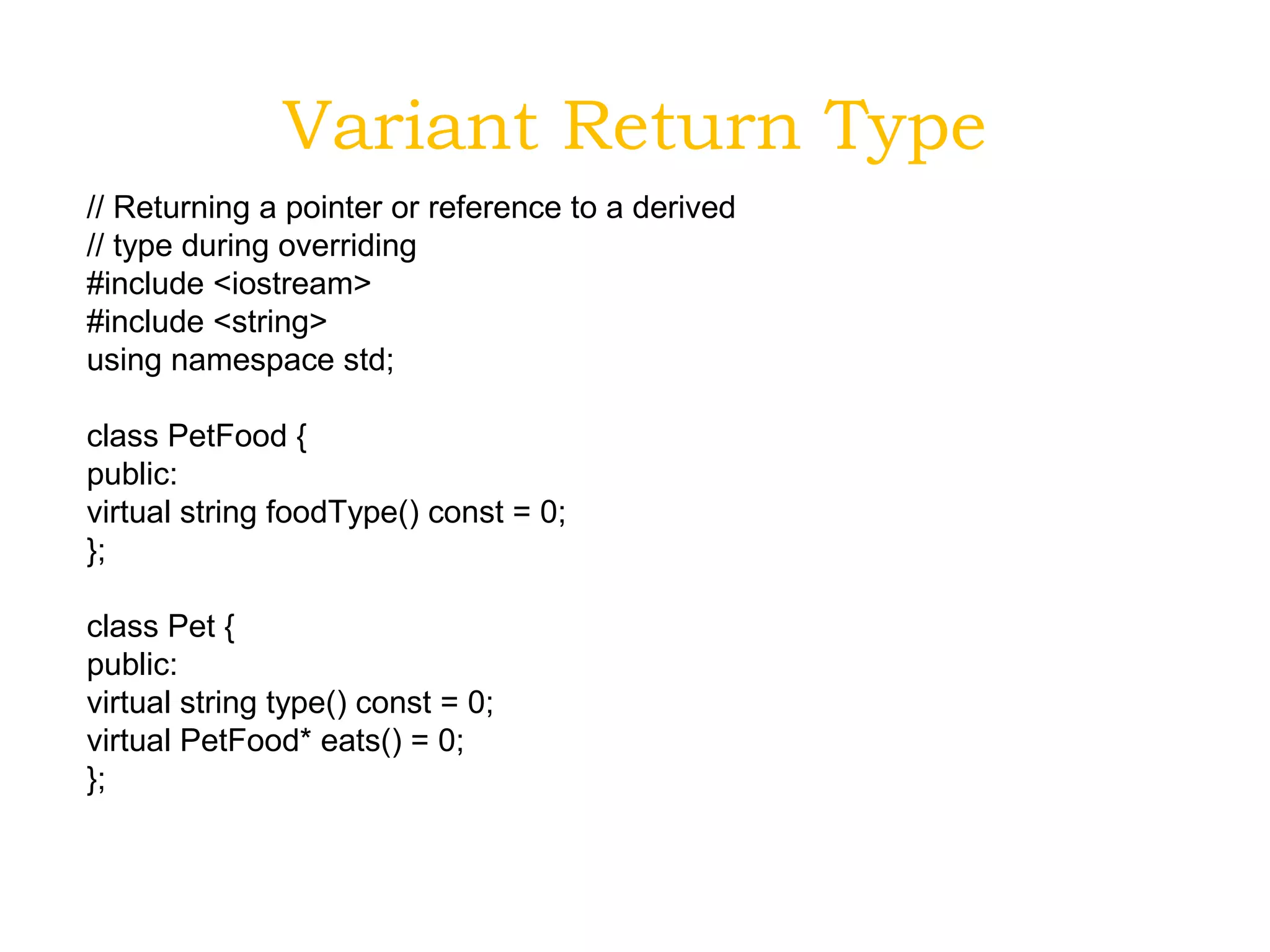
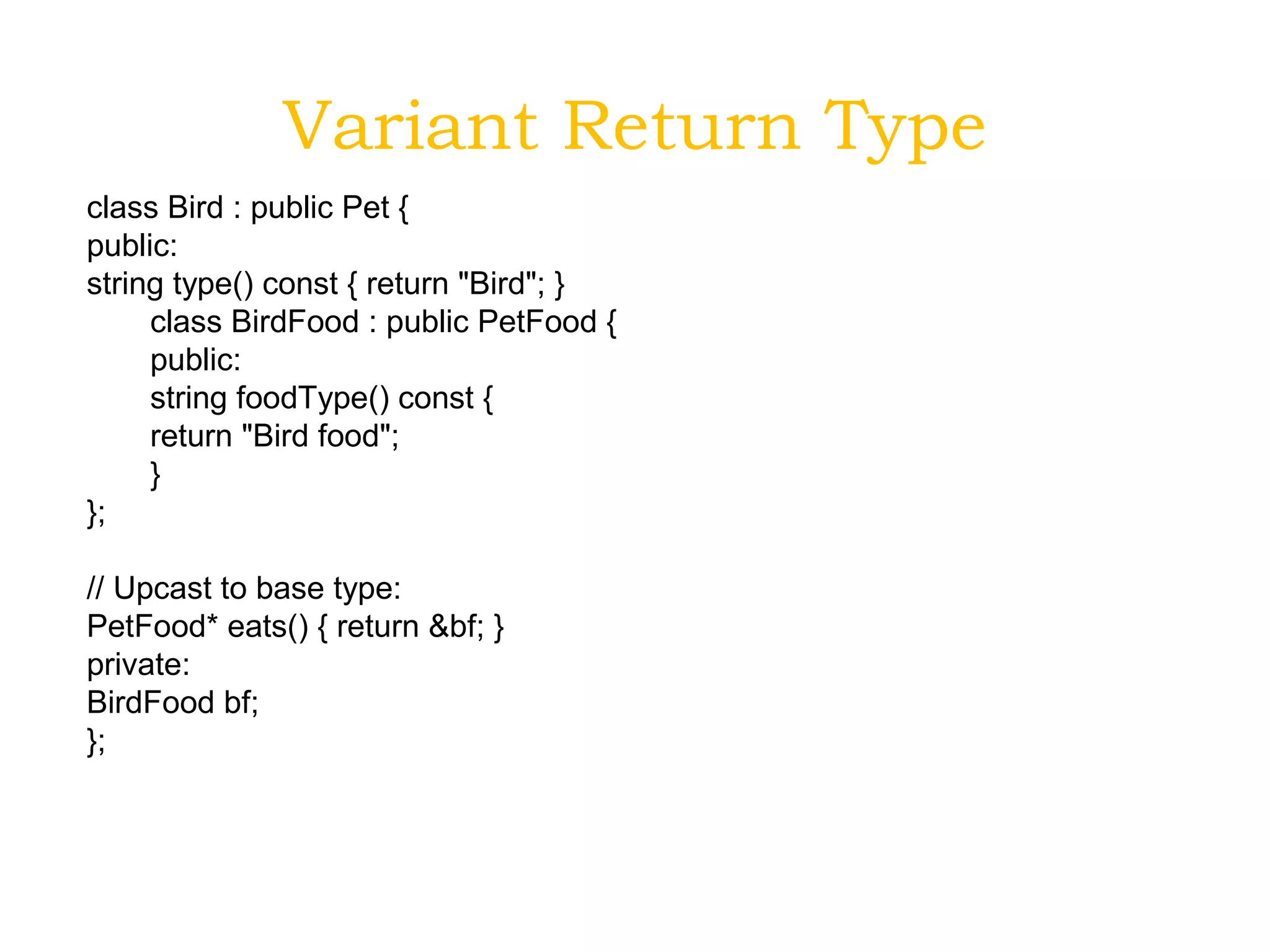
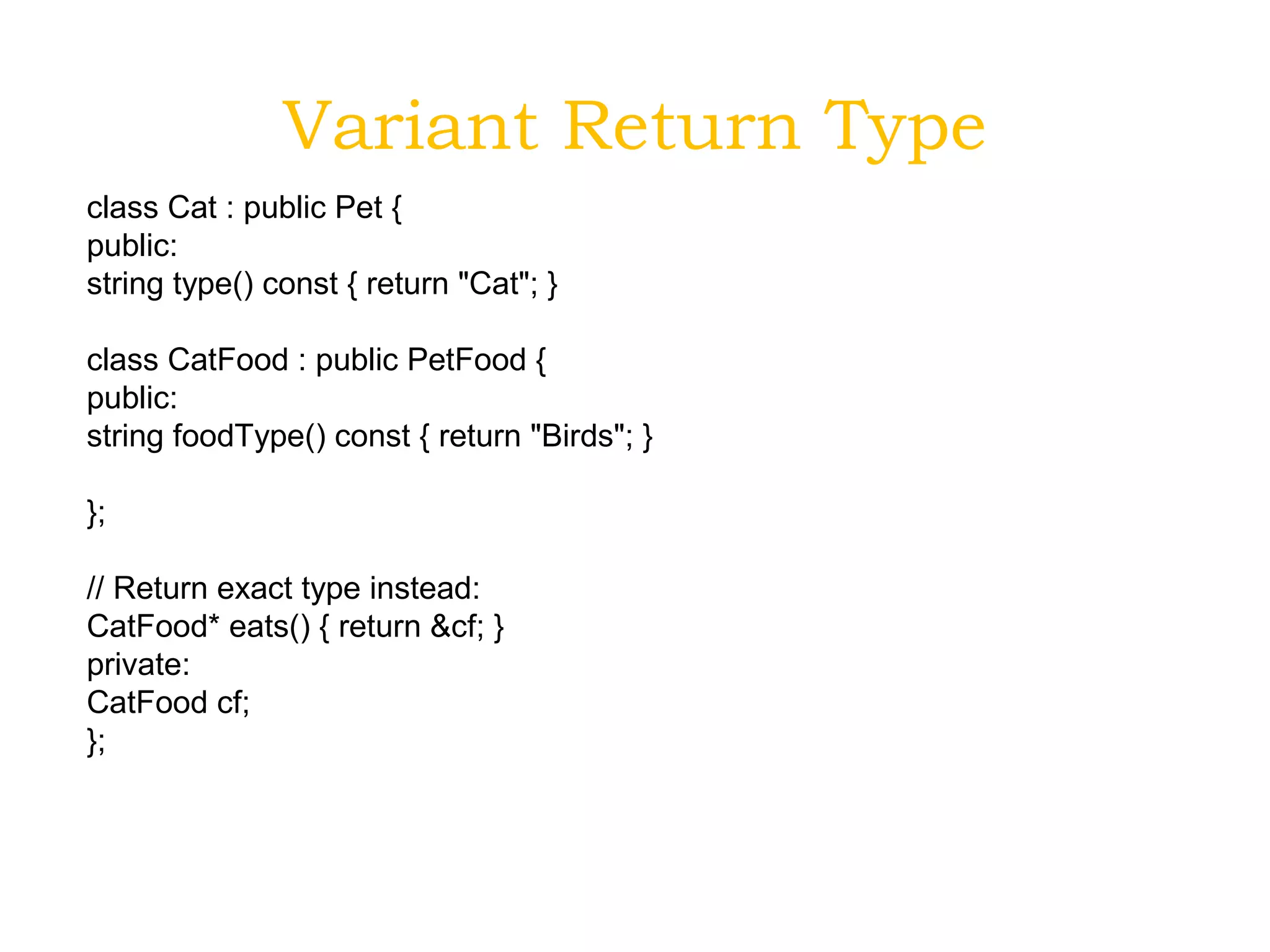
![int main() { Bird b; Cat c; Pet* p[] = { &b, &c, }; for(int i = 0; i < sizeof p / sizeof *p; i++) cout << p[i]->type() << " eats “<< p[i]->eats()->foodType() << endl; // Can return the exact type: Cat::CatFood* cf = c.eats(); Bird::BirdFood* bf; // Cannot return the exact type: //! bf = b.eats(); // Must downcast: bf = dynamic_cast<Bird::BirdFood*>(b.eats()); } ///:~ Variant Return Type](https://image.slidesharecdn.com/inheritancecompilersupport-170503092033/75/Inheritance-compiler-support-14-2048.jpg)
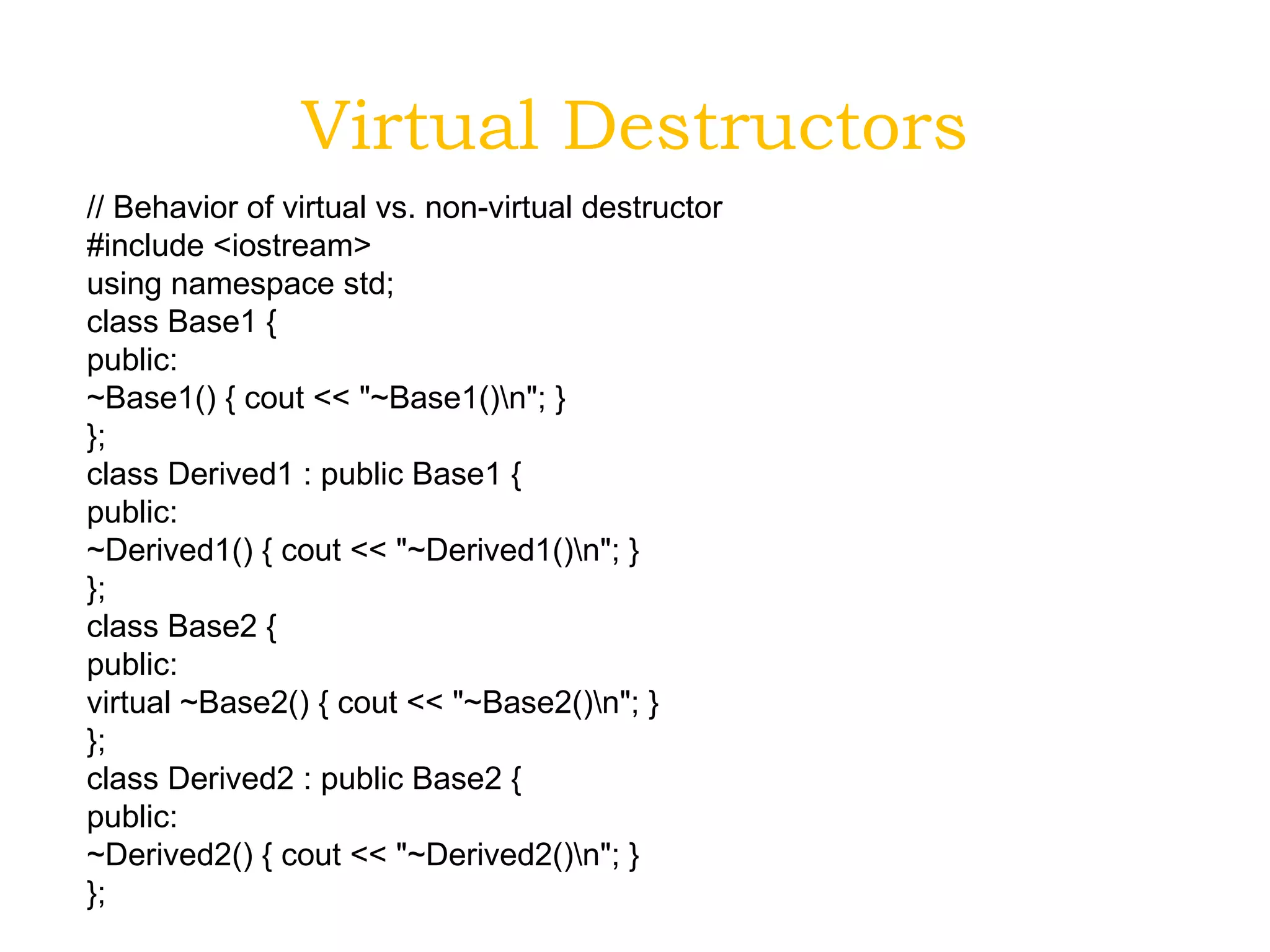
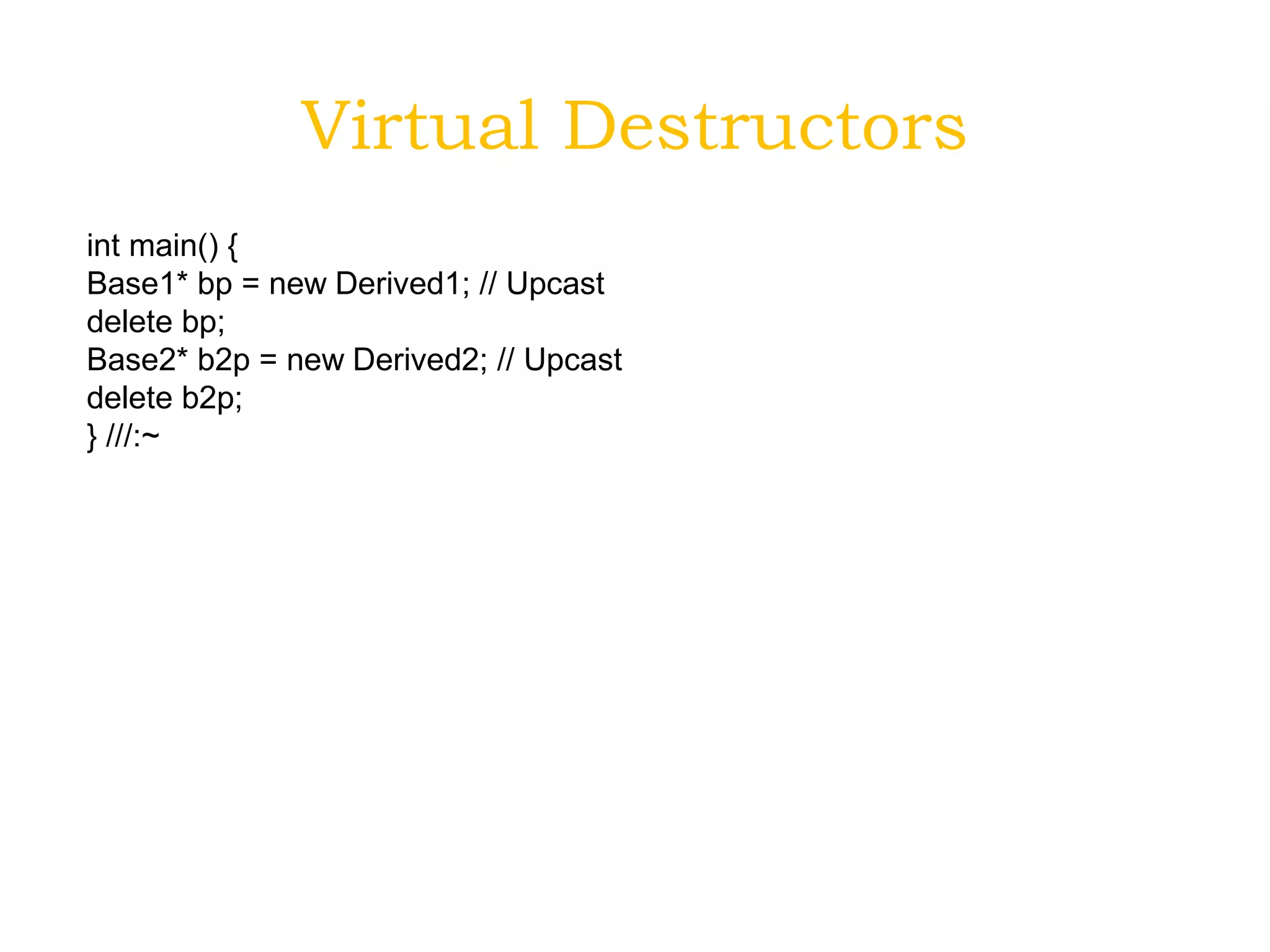
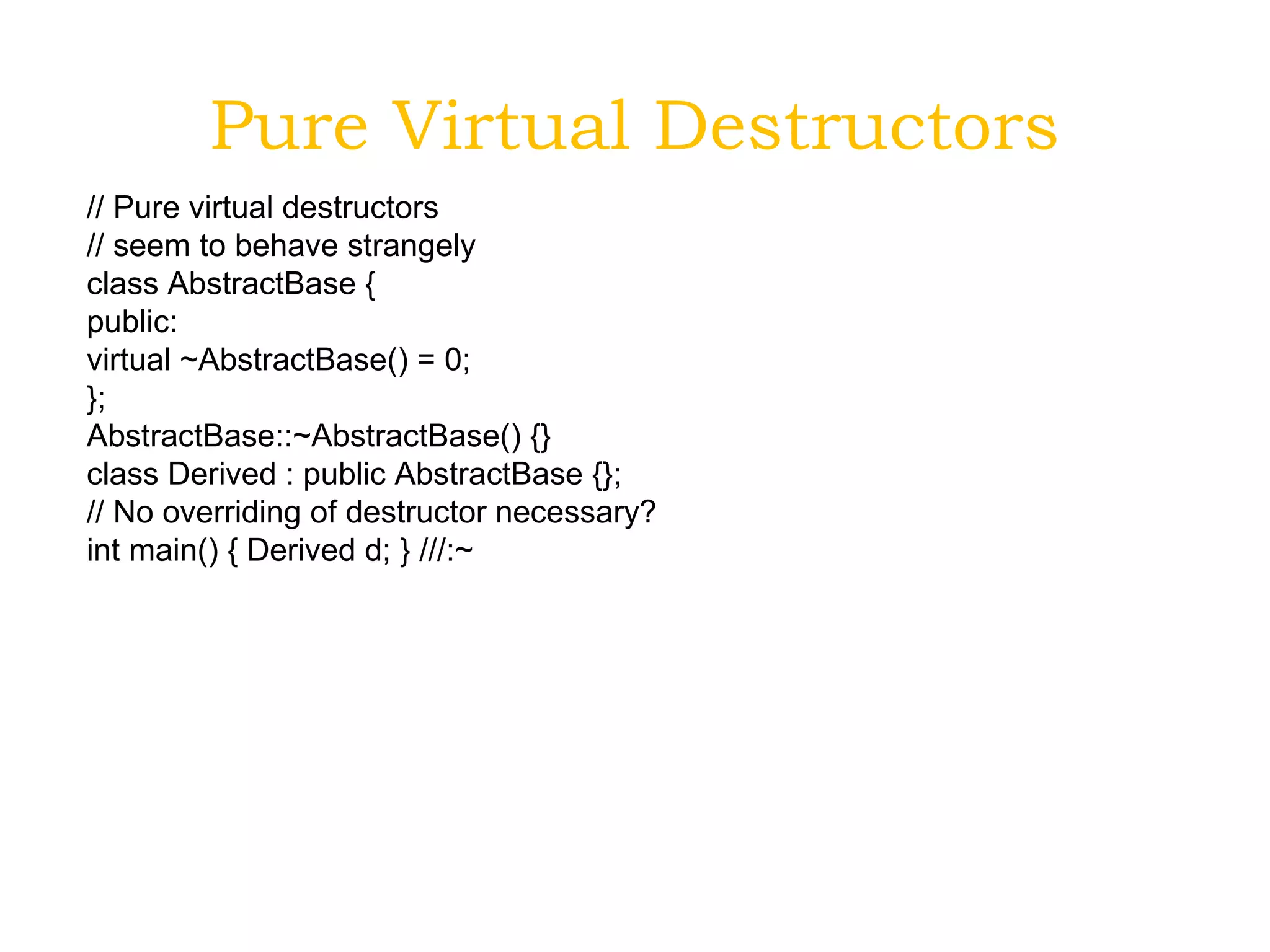
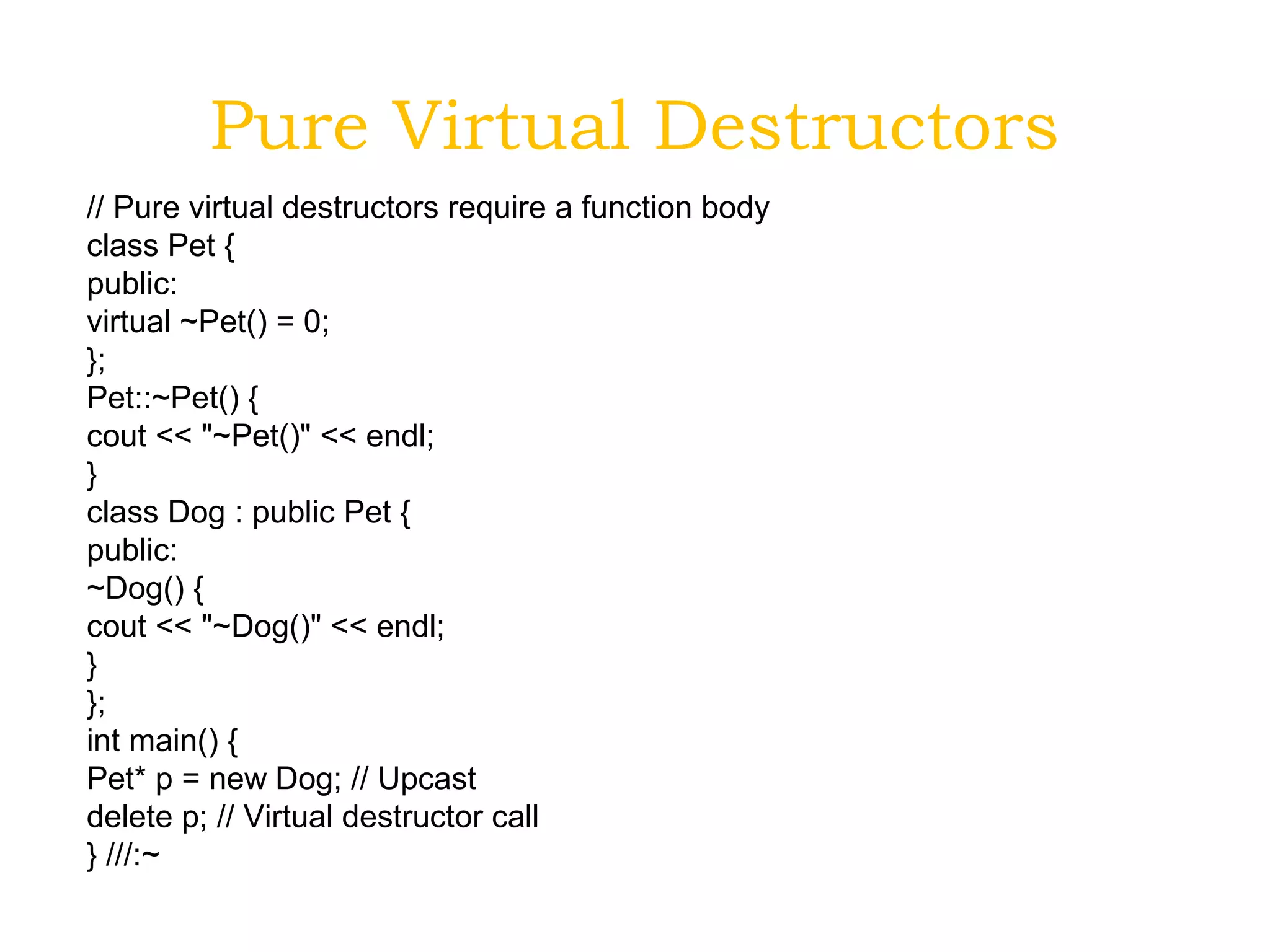
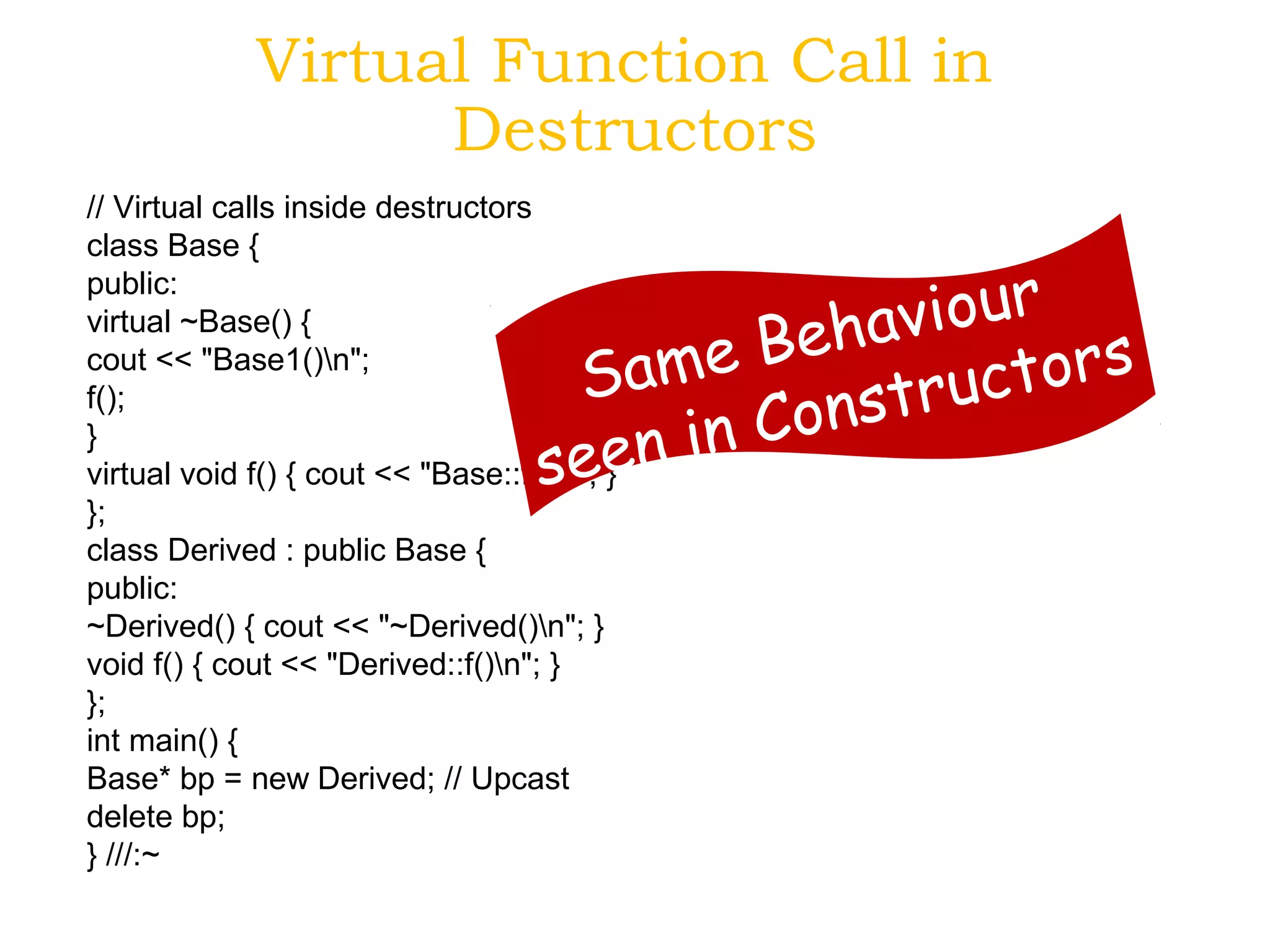
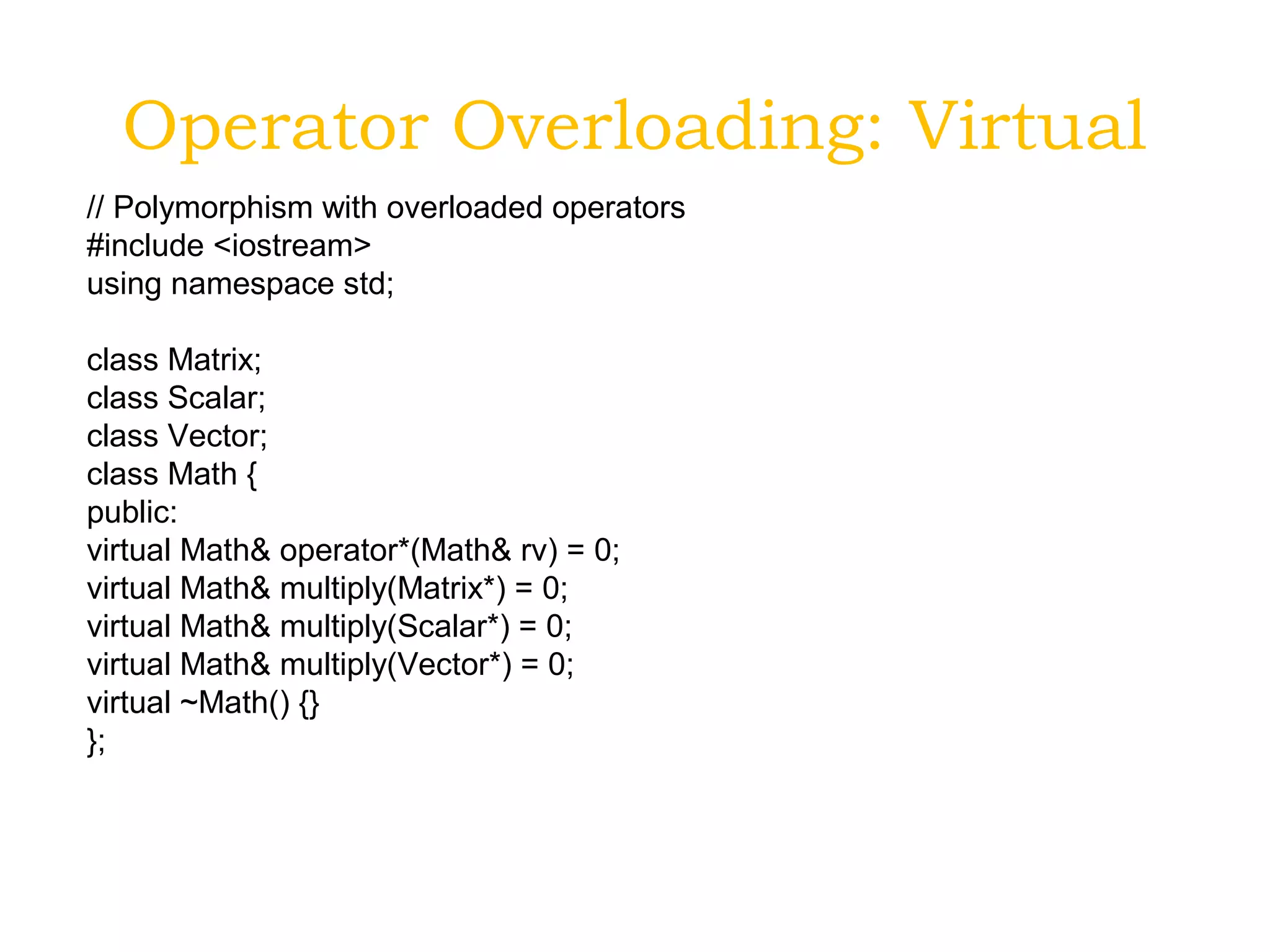
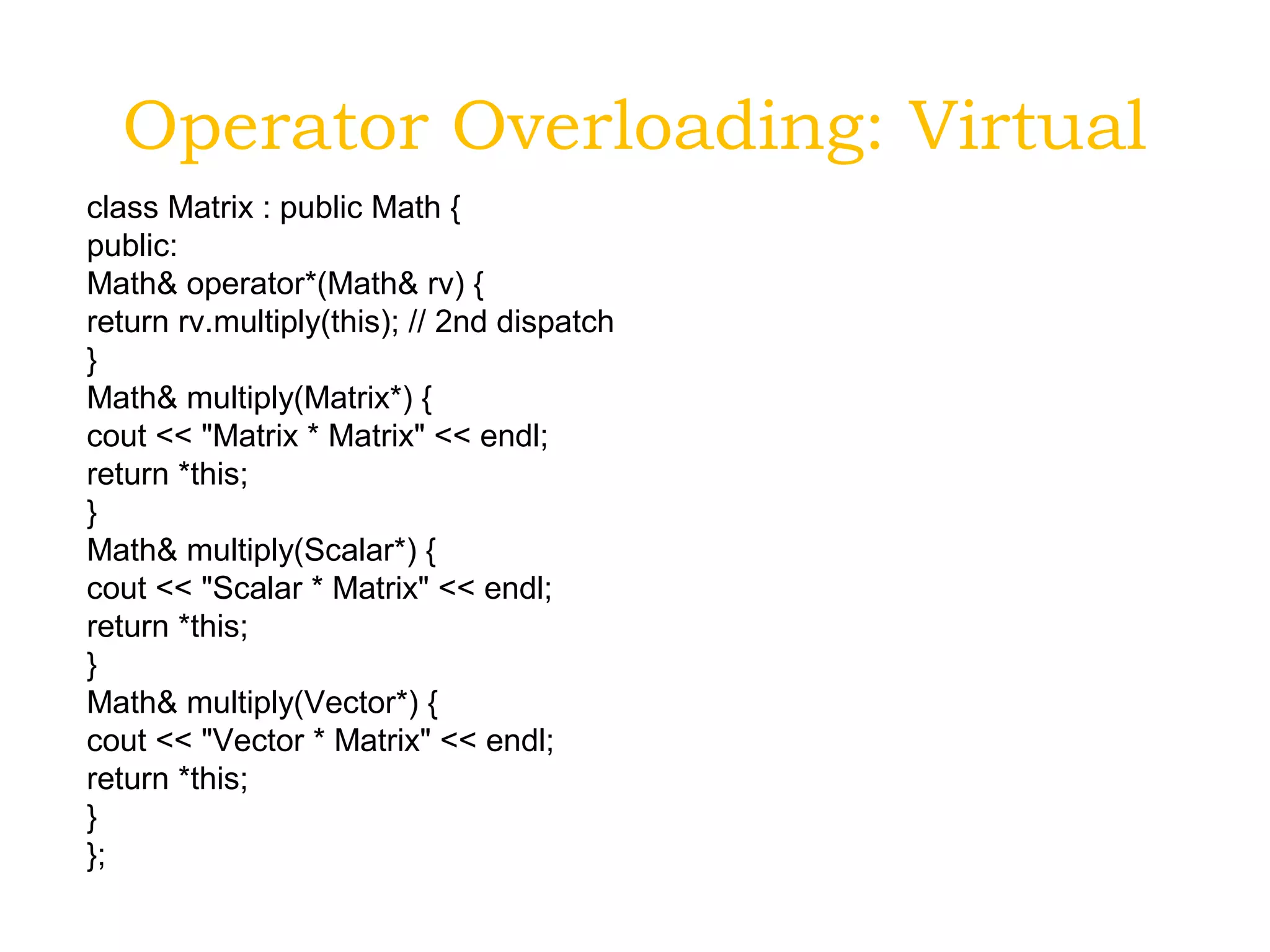
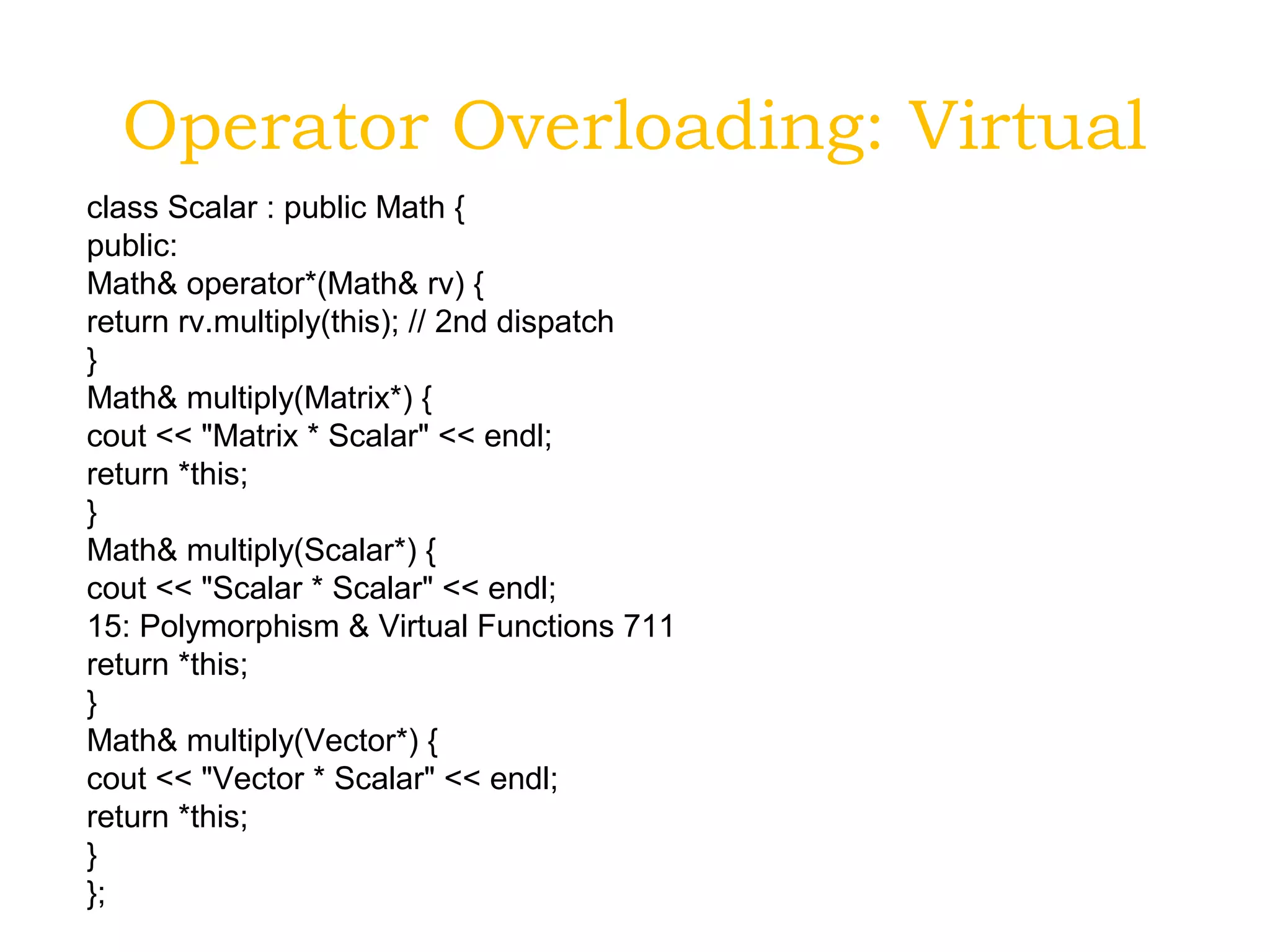
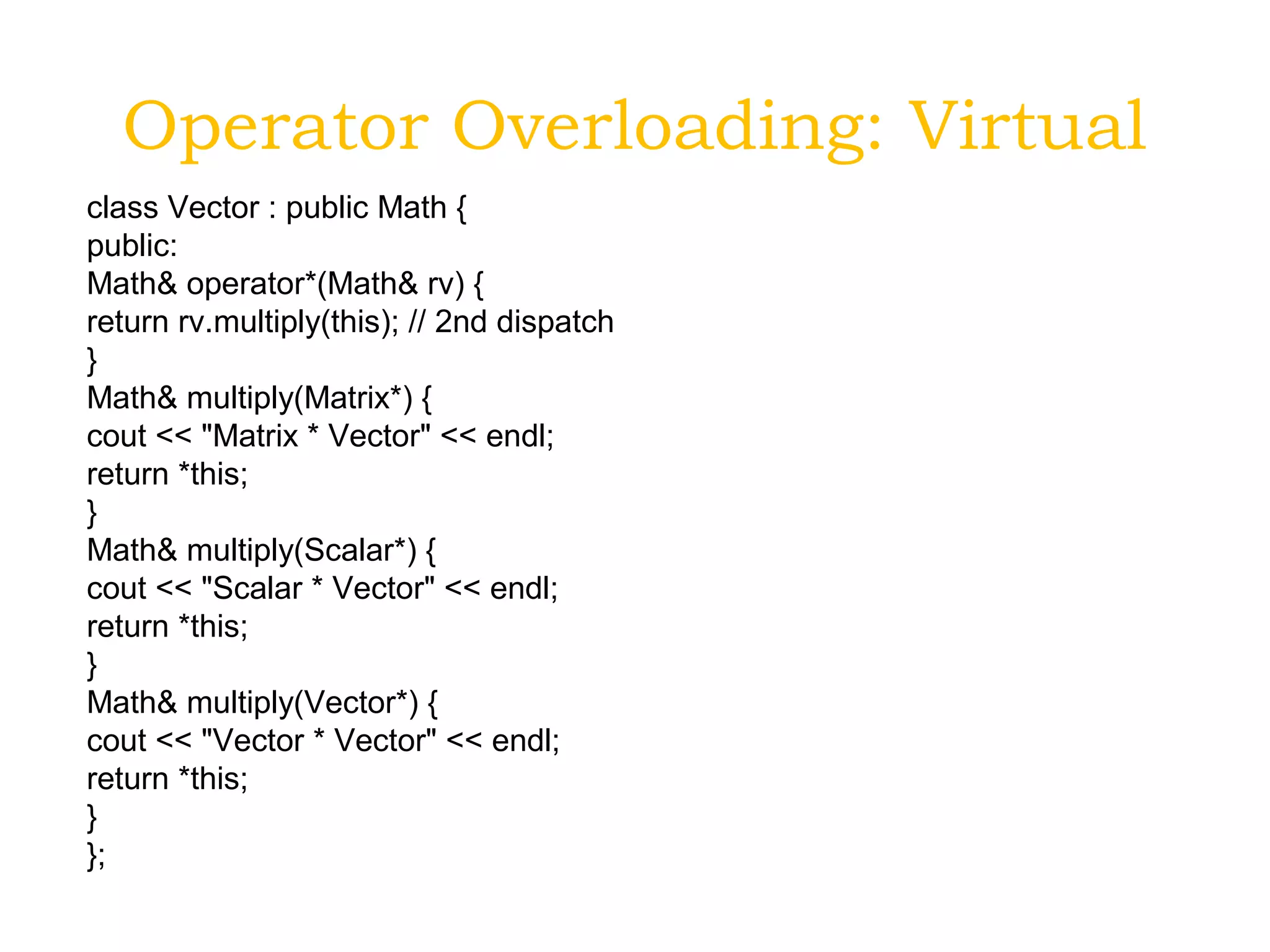
![int main() { Matrix m; Vector v; Scalar s; Math* math[] = { &m, &v, &s }; for(int i = 0; i < 3; i++) for(int j = 0; j < 3; j++) { Math& m1 = *math[i]; Math& m2 = *math[j]; m1 * m2; } } ///:~ Operator Overloading: Virtual](https://image.slidesharecdn.com/inheritancecompilersupport-170503092033/75/Inheritance-compiler-support-24-2048.jpg)